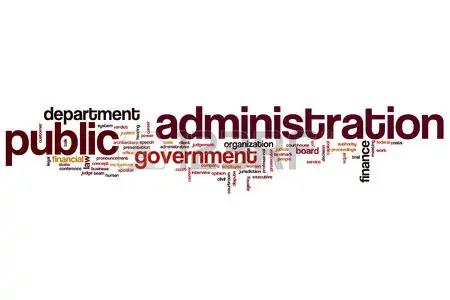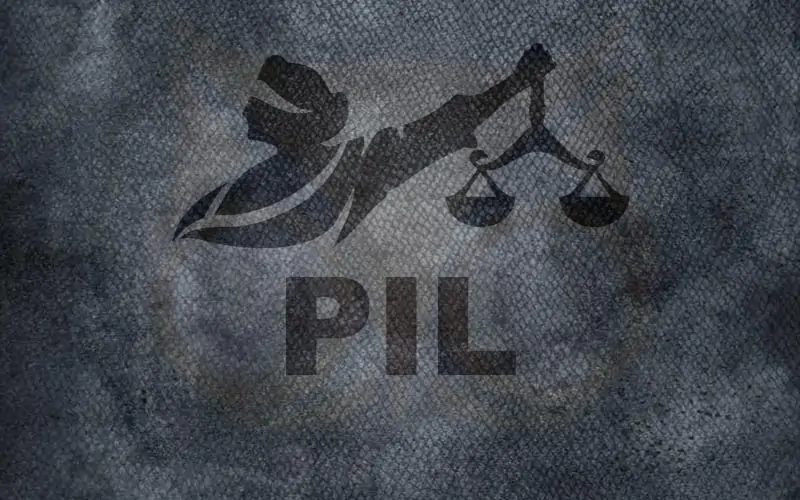What do you understand by the term Public Administrative? Discuss its nature and scope.
The term “Public Administration” originated with the publication of Woodrow Wilson’s work, “The Study of Administration” in 1887. Wilson is considered the founder of the academic discipline of Public Administration.
In his work, he make a distinction between politics and administration. The origin and evolution of Public Administration as a distinctive subject can be traced from 1887 onwards. It is a young social science. It is a instrument of government is mainly concerned with the performance of these activities, like enforcement of law and order. It is a discipline just like History, Economics, Political Science, etc.
Today it is a separate discipline and it deals with an aspect of human behavior. In every society there are some activities like maintenance of law and order and defense, what is most essential for the public interest.

The English word “administer” is derived from the Latin word “ad” and “ministrate” which means “to serve”, to care for or to look after people. J.S. Hodgson describes administration as a kind of activity found in both public and business affairs.
In the opinion of H. Simon, “Administration can be defined as the activities of groups cooperating to accomplish common goals.” For J.M. Pfiffner, “Administration is the organization and direction of human and material resources to achieve desired ends.” EA. Nigro views, “Administration is the organization and use of men and materials to accomplish a purpose.” Thus it is clear that, administration is collective activity which involves rational organization and management of men and material.
Public Administration is a field of systematic study and it is a specialized academic field. It deals with the machinery and procedures of governmental activities. It is mainly concerned with the three branches of government legislative, executive and judiciary. Some well known definitions of Public Administration are:
According to Luther Gullick, Public Administration is that part of the science of administration which has to do with government and thus, concerns itself, primarily with the executive branch, where the work of government is done through there are, obviously, problems also in connection with the legislative and judicial branches.
For Waldo, Public Administration is the art and science of management as applied to the affairs of state.
In the opinion .of. L.D. White, Public Administration consists of all those operations having for their purpose the fulfillment or enforcement of public policy.
According. to Woodrow Wilson, Public Administration is a detailed and systematic application of law. Every particular application of law is an art of administration.
For H. Simon, By Public Administration, is meant in common usage the activities of the executives, branches of the national, state and local governments.
Nature of Public Administration:
Nature of Public Administration has been cleat discussed by the help of two views Integral view and management view.
Integral View: The supporters of this view are Henri Fayol and L.D. White. According to this view, Public Administration is a sum total of all the activities undertaken in pursuit of and in fulfillment Of public policy. These activities include managerial, technical, manual and clerical. Prof. L.D.
White express of view on Public Administration that Public Administration consists of all these operations having for their purpose to fulfillment or enforcement of public policy. In the view of Dimock, he holds that administration is concerned with the “what” and “how” of government. The “what” is the subject-matter which administration to perform his tasks. The “how” is the technique of management which cooperative programmes are carried to success.
Managerial View:
Luther Gullick, Herbert Simon Smithburg and Thompson: are the supporters of this view. According to this view, Public Administration deals with the activities of people especially who are involved in the field of planning, organization, commanding, coordinating and controlling. According to Luther Gullick, administration has to do with getting things done; with the accomplishment’ of defined objectives.
These two views differ from each other in many ways. The managerial view refer to the, activities of a few persons at the top, whereas the integral view includes the activities of all persons’ engaged in administration. The integral view activities refers to manual to managerial, from non-technical to technical whereas in the managerial view takes only account only the managerial activities in an organization, Luther Gullick defines these techniques by word: “POSDCORB” which means planning, organization, staffing, direction, coordinating, reporting and budgeting.
Scope of Public Administration
Public Administration covers every area and activity governed by public policy. Today it has increased, both in magnitude and direction to look after the welfare of the people through the new tools and techniques made available by science and technology. Several thinkers have explain their view, on the scope of public administration, which is briefly discussed in the following:
Luther Gullick: uses the word “POSDCORB”, which means: planning, organization, staffing, directing, coordinating, reporting and budgeting.
- Planning refers to the method to accomplish the purpose.
- Organization refers to the formal structure of authority.
- Staffing means the recruitment and training of the personnel and their condition of work.
- Directing means making decisions and issuing orders and instructions.
- Coordinating refers to the interrelating the work of various divisions of the organisation.
- Reporting means to informing to the executive who is responsible about what is going on.
- Budgeting refers to fixed planning, control and accounting.
Walker: According to Walker scope of public administration has been divided into two parts:
Administrative Theory: It basically includes the study of structure, organization, functions and methods of all types of public authority, at all levels, for example, national, regional, local and so on.
Applied Administration: Applied Administration has ten basic principal functions which are discussed in the following heads
- Political: It study the executive-legislative relationship and minister-official relationship.
- Legislative: It is based on delegated legislation and preparatory work done by the officials.
- Financial: It refers to the preparation of budget section.
- Defensive: It is study of military administration.
- Educational: It is related to all aspects of educational administration.
- Social: It deals in the social field such as housing, food, social security and employment, and so on.
- Economic: It covers all administrative activities in the economic field, i.e., industries, agriculture, foreign trade, commerce, public enterprises, etc.
- Foreign: It is based on international cooperation, international agencies for international peace and prosperity.
- Imperial: It includes problems and techniques of imperial domination over other nations etc.
- Local: Public Administration also deals with the local bodies.
Pfiffner: also divided the scope of public administration into two parts such as,
Organization: It is the structure of individuals which helps into productive relationship.
The Principles of Public Administration has some problems, which are discussed in the following:
- Management of Personnel: It mainly deals with the direction of the individual which help to achieve ends.
- Method and Procedures: It is the technique of administration and the process of working.
- Material and Supply: It is also most essential goods which help administrative work is carried out, e.g. cardboard, tag, furniture, etc.
- Public Finance: It is essential because without it work cannot be performed.
- Administrative Accountability: Both internal as well as external responsibility to law, court, legislative and the people.
Pfiffner’s sphere of public administration deals in central government, state government, its regional and local authorities and also the public corporations.
Critical Evaluation: According to Waldo, “Public Administration has grown so broad and so much is involved at its periphery that it stands in danger of disappearing completely as a recognizable focus of study.”
Period of 1948 to 1970, it is the period of public administration when it lost the identity Political science is called as the mother of all sciences and Public Administration is a part of the political science. But today, public administration is an independent or full discipline just like other social sciences. Public administration has specialized study in following major areas:
- Administrative or Organization Theory,
- Public Personnel Administration,
- Public Financial Administration,
- Comparative Public Administration, and
- Public Policy
According to traditional view, public administration mostly deals with executive functions of the government. But in the contemporary view, public administration is not only concerned with execution of policies but is concerned with policy formulation as well as its execution.
Today in the most of the countries administrators implement public policies and subsequently they also play a major role in policy making. In countries like U.K. and India the top civil servants certainly wield more influence in policy-making than do average members of Parliaments.
Therefore, today, public administration deals with both implementation and policy-making. According to F.M. Marx, “Administration is always the servant of policy Administration denotes means and means have no significance-except in terms of ends. On the whole, public administration performs a dual role in administrative process e.g.
- Provides an informal professional input for the formulation of the policy and
- It helps in implementing and evaluating the policy.





